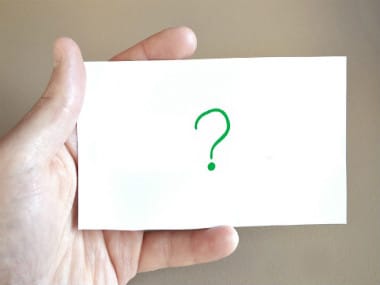Testicles are like snowflakes: no two are the same. Or so say researchers who study sexual health. Oval in shape, each testicle measures one cubic centimetre at birth. They start growing around the time boys turn 8, and reach maturity at puberty. Beyond this point, the testicles produce sperm and testosterone. [caption id=“attachment_7774761” align=“alignleft” width=“380”]  Representational image. Image by athree23 from Pixabay[/caption] It is common for both of your testicles to not be the same size: the left one is likely to be bigger and this is completely normal. But is there a “normal” size for testes? Does size matter? And can you do anything if you don’t like the size of yours? Read on to know:
Promiscuity versus parenting instincts
Clinical evidence shows that men’s testicles “normally” range from 6-20 ml or 4 x 3 x 2 cm in size. This is roughly the size of medium-sized dates. Studies have shown that men with larger testicles produce more sperm and testosterone. A study published in 2013 confirmed these findings but added an interesting twist: it correlated smaller testes to more nurturing and caring fathers and larger testes with a higher incidence of promiscuity - they were involved in broken marriages and were more absent from their children’s lives, according to the researchers. The researchers used the evolutionary phenomenon of life history to explain the findings: the theory states that males tend to make a trade-off between mating and procreation, and nurturing and rearing their offspring. The study said that males with larger testicles were more inclined to extend their bloodline rather than caring for their children. The researcher even used MRIs to assess brain activity in the ventral tegmental area, which is linked with parental association. Their finding: in men with smaller testicles, this area was activated more on seeing pictures of their kids. Of course, the study has some limitations: the study acknowledged some at the outset. For example, an argument can be made for nature versus nurture in forming parent-children bonds. If physiology - in this case, larger testicles - pulls men towards promiscuity and procreation, then cultural moors may exert a pull in the opposite direction, too.
Does size matter
In some instances, yes. We all know about shrinkage: testicles shrink when they’re exposed to the cold, like when the body is immersed in cold water. Men can sometimes notice the difference after a cold shower - the testicles seem to recede and then return to normal size after warming up. Here’s why that happens: the scrotum constricts and pulls the testicles closer to the body to maintain a constant temperature for sperm to function in. Testicular size also decreases with age in a process called testicular atrophy. The change is gradual and is accompanied by a lower sex drive and reduced muscle mass. While these are normal bodily processes, there are some changes in the size of testicles that you should look out for. For instance, a sudden and painful change in the size of the testes could be caused by testicular torsion: a twisting of the spermatic cord that requires immediate medical attention to prevent further complications. Trauma to the penis can also cause the testicles to shrink. Certain sexually transmitted infections such as syphilis and gonorrhoea may also cause the testicles to shrink. (Rule of thumb: if you have difficulty peeing, it is a good idea to get checked by a doctor asap.) Additionally, tuberculosis, mumps and other viral infections can also cause the testicles to shrink. Klinefelter syndrome, a genetic disorder in which men have an extra X chromosome diminishes the amount of testosterone produced and leads to smaller-than-average testicles. The treatment for this is usually hormone replacement therapy. While it is rare, testicular cancer can also cause the testicles to shrink. It is good practice for all men to examine their penises for lumps at least once a month. This is best done after a warm shower so the testicles are fully descended. In summary, it is unlikely that smaller testicles are a cause for concern. However, if you encounter sudden pain or find a lump, arrange a check-up with your doctor. For more information, please read our article on Testicular Swelling_. _ Health articles in Firstpost are written by myUpchar.com, India’s first and biggest resource for verified medical information. At myUpchar, researchers and journalists work with doctors to bring you information on all things health.


)

)
)
)
)
)
)
)
)



